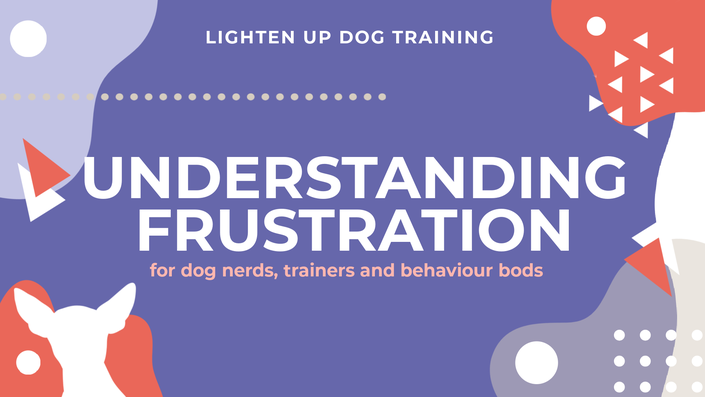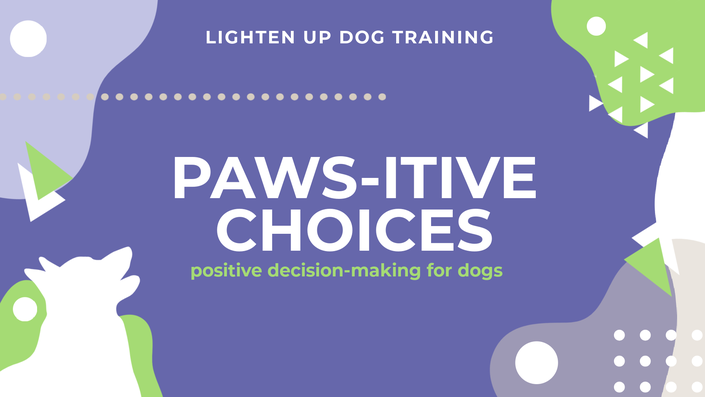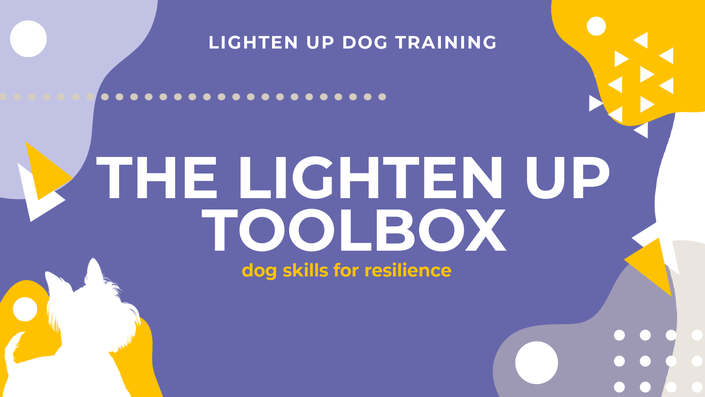THIS COURSE IS CURRENTLY CLOSED FOR ENROLMENT
If you're interested in joining in 2025, you can add your name to the waitlist.
Course sales will open on Monday 17th March 2025 at 8am. The course will go live on Monday 7th April 2025, running live for six weeks.
It's great if you want to keep up and follow along. No worries if you can't: you get lifetime access to the materials.
Register your interest on the waitlist and I'll send you an email reminder when sales open in March 2025.

ABOUT THE COURSE
Is there anything worse than having to keep your dog on a lead when they struggle to keep their cool the moment they see another dog?
If you've ever tried to hold on to a dog who's barking, spinning, rearing up, lunging, howling, tying you in knots with the lead and generally making a show of themselves, you can be forgiven for letting your dog off the lead, even if your dog races over to say hi and has even had fights because of this.
It's often not any easier in the car either if they're barking out of the window the moment they spot another dog.
You're here because you know already they don't need more socialisation. Things are not getting better. Being off-lead isn't working.
You also know that the only reason you let them off lead is because it's not quite as bad as keeping them on it.
In this course, you'll learn all the skills you need to turn the mayhem into something a little bit more masterful.
By the end, you'll have a whole range of strategies to help your dog cope on lead or in the car when they see another dog. No more screaming, barking, circling or spinning... just focused and fun.

Big or small
It's no fun trying to walk a dog who goes absolutely nuts when they see another dog. Vet visits turn into a barking, chaotic nightmare. You may feel like you're nothing more than ballast on a walk, there for no reason other than weighing your dog down like some kind of human anchor.

Frenzied but friendly
You know your dog is friendly though. That's the problem. They just want to greet every single other dog they see. Maybe they love people, but they can't cope if people don't want 40kg of dog jumping all over them. If they're on the lead, however, all hell breaks loose.

Nothing seems to work
You may have tried to calm your dog down. Perhaps you've hoped that they'll get sick of greeting dogs if they get to meet hundreds of dogs. Or maybe you're the one who looks at all kinds of harnesses, hoping to find one that will help you manage your dog just a little.
KEY STRATEGIES FOR SUCCESS
Many of us with frustrated dogs struggle with traditional training approaches for fearful or reactive dogs.
Often, programmes use exposure therapies, trying to help your dog get used to other dogs around.
The only problem with these methods is that frustration builds rather than decreasing, and we're left struggling to know how to manage our dogs. We know punishment won't work and could cause significant problems later on, but asking our dogs for 'calm' and 'still' behaviours just seems to be completely impossible.
The Lighten Up approach for frustrated dogs is a little different. You take a little time to embed some focus skills and impulse control, and then we take it out on the road!

Practical skills
This course goes right from the basics. Got a dog who doesn't take food or listen to you outside the front door? A dog who is a maniac in the car? Loose lead a distant dream?
We've got you covered

Fully Supported
Most courses just leave you to get on with it. When problems occur or we just can't think how to adapt materials to ourown situation, many of us just give up. It'd be nice... but we're not there yet.
Social support makes it so much easier.

Bitesize lessons
Modern life is busy and we just want to be enjoying social activities with our dogs, not swotting up for a degree. Each week, you'll get between 1-2hrs of video content, workbooks and guides.
Study at your own pace.
CURRICULUM
- Week 01 Introduction (14:22)
- About Frustration (35:23)
- The Role of Impulse Control (29:37)
- Self-assessment (14:22)
- Understanding the full picture (19:04)
- Fusion and fission: why dogs may struggle specifically with greetings (20:53)
- The body language of frustration (20:21)
- Temporary Management (23:16)
- Week 01 plenary (5:38)
ABOUT ME
Having spent six years as a trustee in a large open-access shelter in France, I'm well-versed in the ways in how hard it can be when your dog simply can't cope with seeing another dog. It is an experience that is very familiar to many of my clients who struggle to take their dog out anywhere at all.
When you have a dog who barks and lunges at other dogs, it makes everything else so much harder. Vet visits, grooming sessions and social walks seem beyond our dog's capacity to cope.
Working with lots of dogs who struggle when another dog comes into view when they're out on a walk has helped me understand just how hard it can be to cope.
I qualified to teach in 1995 following a BA (Hons) and I'm also a certified behaviour consultant (CSB-D IAABC). I'm guardian to Lidy, a malinois who spent many years in the shelter. I have been a canine behaviour consultant since 2016 and specialise in reactive, fearful and aggressive behaviour.
It's my aim to make learning irresistible for all learners in my life. Easy, clear, practical and fun are my only requirements.





